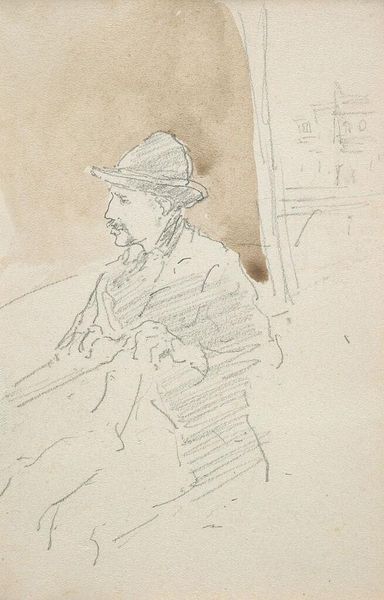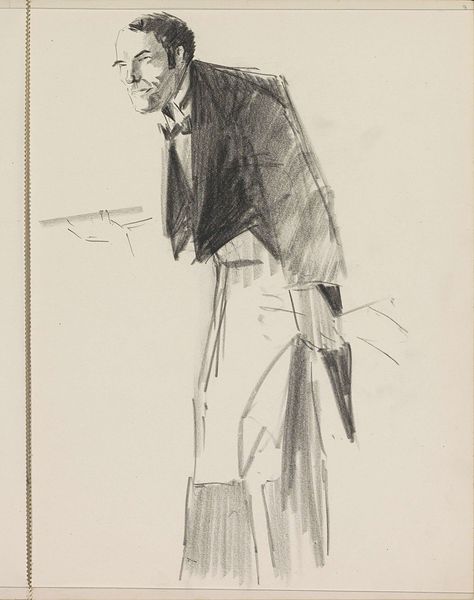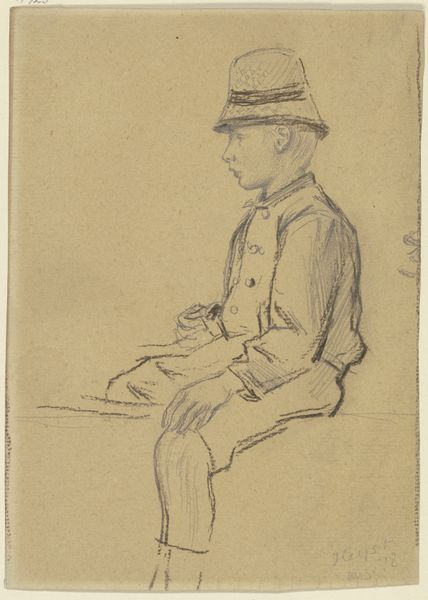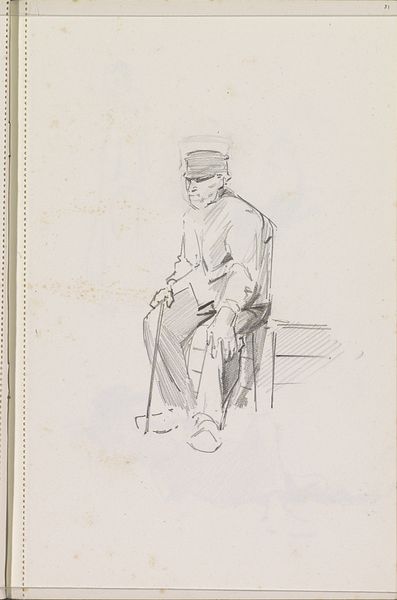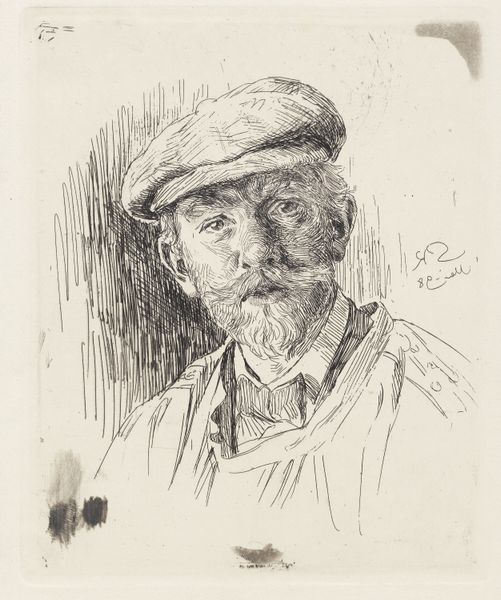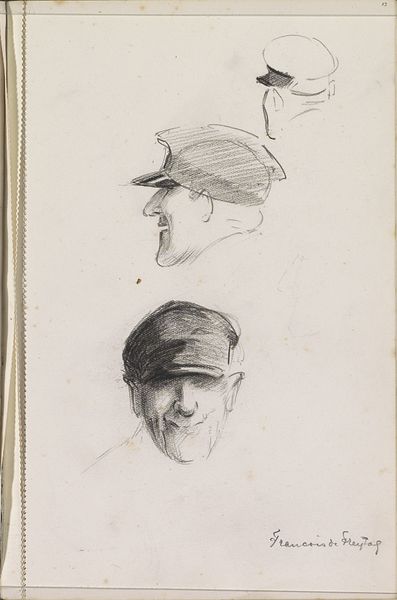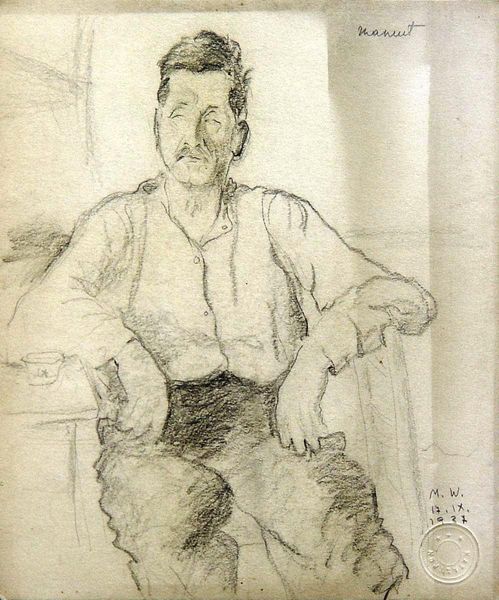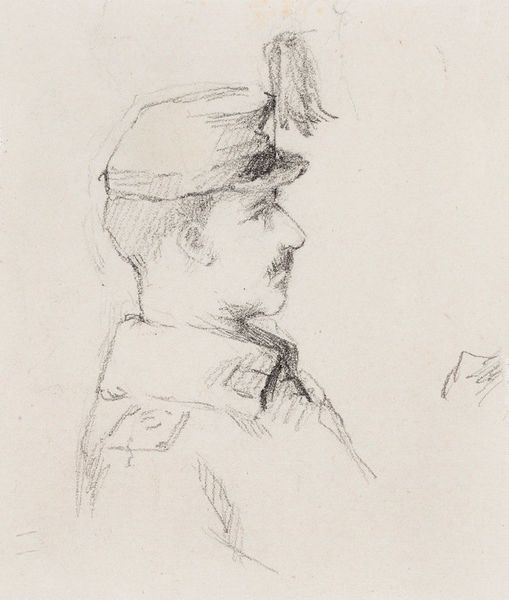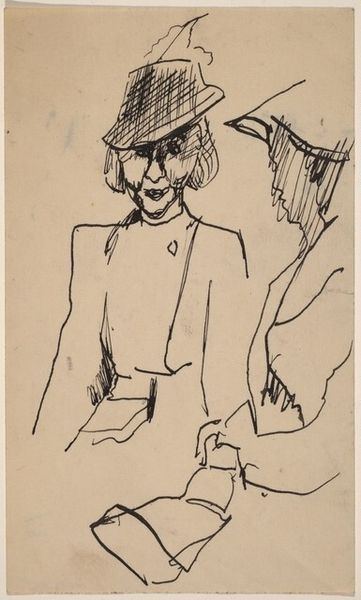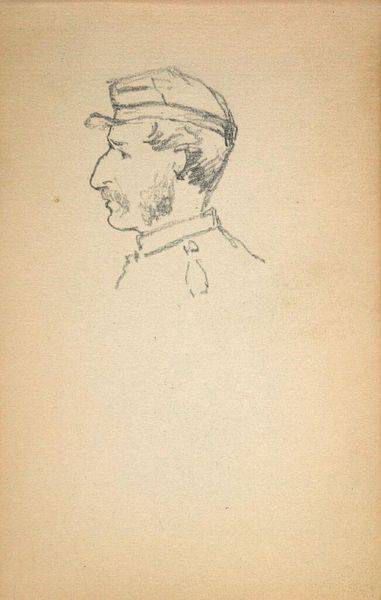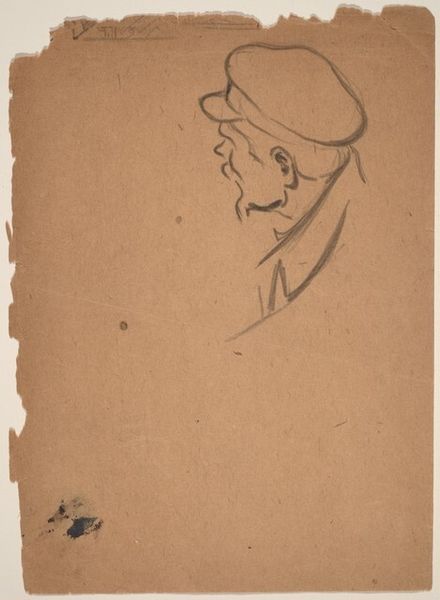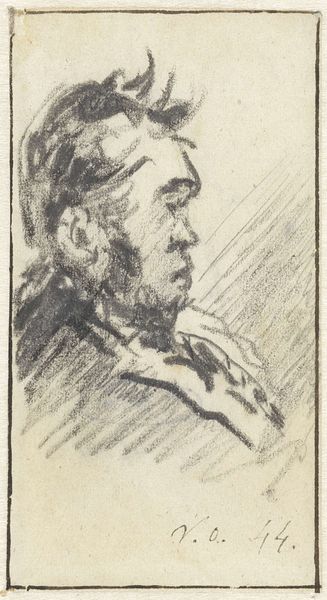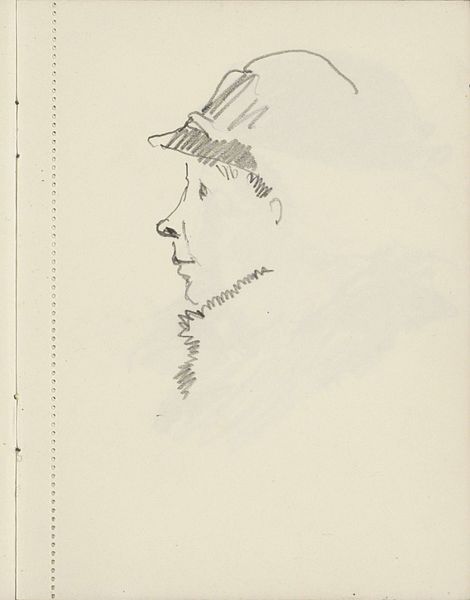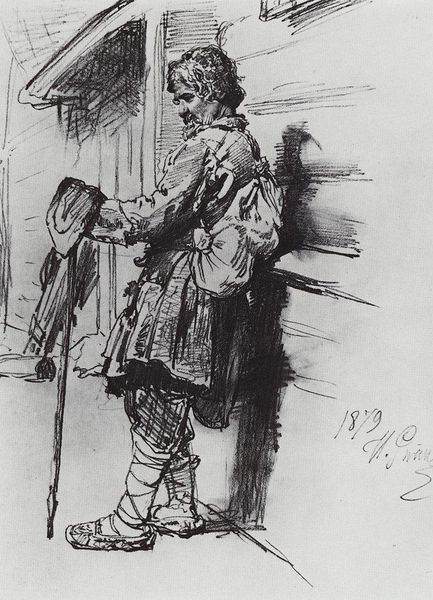
drawing, watercolor
#
portrait
#
drawing
#
pencil sketch
#
charcoal drawing
#
watercolor
#
pencil drawing
#
portrait drawing
#
post-impressionism
#
watercolor
#
realism
Copyright: Public domain
Paul Cézanne made this watercolor sketch, Man with a Pipe, sometime during his career in France. Cézanne’s paintings mark a critical transition in the history of art. He was a generation younger than the Impressionists, but his approach to painting, using small patches of color to construct solid forms, opened the way to Cubism and abstraction. He's often described as a painter’s painter because his pictures are so concerned with the fundamentals of visual expression, but we shouldn’t forget the ways in which his art engages with the social realities of his time. The man with the pipe is a typical subject in nineteenth-century French art. Smoking was associated with working-class men. Cézanne isn’t so much interested in capturing the likeness of a particular person as he is in using this anonymous figure to explore the possibilities of painting itself. The way in which he portrays the solid form is very innovative. To understand Cézanne’s innovations better, we can consult letters, and critical reviews of his work, to know the background of the cultural moment.
Comments
No comments
Be the first to comment and join the conversation on the ultimate creative platform.
